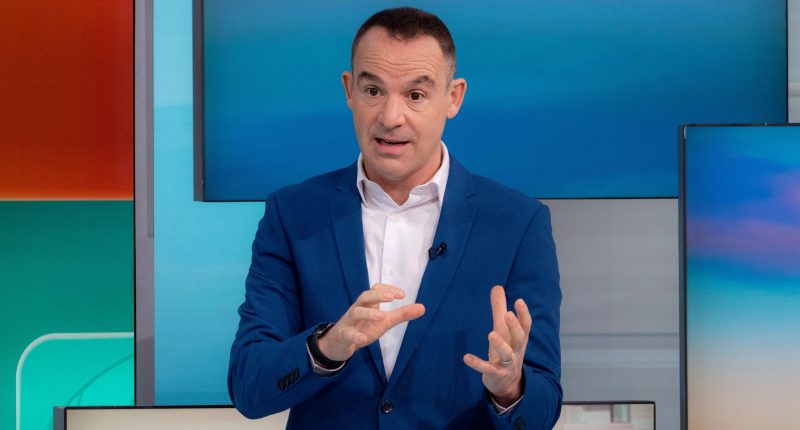A MARTIN Lewis fan has revealed how they will become mortgage free a decade earlier while pocketing savings of £35,000 thanks to an easy trick.
It’s quick and simple to work out if you can follow the same method to make big cash savings.
The MoneySavingExpert site founder advised that if your mortgage rate tops what you can earn in savings, then paying over and above your monthly loan repayment makes sense.
For example, £10,000 saved at 4% interest would earns £400 in interest.
But if you use the same £10,000 towards eroding your mortgage debt you would save £600 in interest payments.
“Using the savings to overpay is a winner – it’s a bit like saving, tax-free, at the mortgage rate,” Martin wrote.
Read more on mortgages
He gave one example of an avid fan Paul who took his advice and had saved 10 years off the mortgage.
The fan wrote in to say that he checks his bank ever day.
He added: “If there is an odd amount, say I have £1,525.36, that’s either £5.36 or £25.36 put towards the mortgage, budget depending.
“We’ve saved £35,000 in interest & knocked 10 years off our mortgage (originally 27 years). We’re continuing to plan to get rid of the mortgage altogether ASAP!”
Most read in Money
However, there the money saving expert said there are two key checks to make before you decide to overpay.
First, you will need to check if there are overpayment penalties from your mortgage lender. Any penalties can wipe out the savings.
And second always keep some cash in an emergency cash fund.
Martin’s rule of thumb is always have money to cover three to six months’ bills accessible in savings, and only overpay with any money above that (unless it’s a specific offset mortgage).
Should you overpay your mortgage?
If you have even a little bit of spare case, there are lucrative long-term benefits for homeowners who put the money towards overpayments.
For example, paying an extra £25 each month on a £250,000 mortgage fixed at a rate of 5% would save £23,986 over a 40-year term.
And in this scenario, a borrower would become mortgage-free two years and five months earlier.
Overpaying can also be a big benefit when it comes to remortgaging. It potentially means you can get a lower loan to value mortgage which typically means lower interest rates when you take on a new deal.
Most lenders will allow you to overpay your mortgage by up to 10% a year.
You can set up regular overpayments or you can just funnel cash towards your debt when you have a bit extra – for example, if you get a bonus at work.
However, the MSE founder warns you need to make sure you’re comparing the highest savings rate you can get.
He said: “If your savings pay a paltry 1%, as too many do, unless they’re locked away in a fix, it’s easy to ditch and switch.
“You can earn over 5% in both top easy access & fixed savings right now, so unless you’re locked in, that’s what you should be comparing with.”
READ MORE SUN STORIES
If you decide to overpay your mortgage, you will also need to be careful to not pay off more than you’re allowed as this could trigger sky-high early repayment charges.
A good mortgage broker can help you understand your options if you need extra guidance.
How to get the best deal on your mortgage
IF you’re looking for a traditional type of mortgage, getting the best rates depends entirely on what’s available at any given time.
There are several ways to land the best deal.
Usually the larger the deposit you have the lower the rate you can get.
If you’re remortgaging and your loan-to-value ratio (LTV) has changed, you’ll get access to better rates than before.
Your LTV will go down if your outstanding mortgage is lower and/or your home’s value is higher.
A change to your credit score or a better salary could also help you access better rates.
And if you’re nearing the end of a fixed deal soon it’s worth looking for new deals now.
You can lock in current deals sometimes up to six months before your current deal ends.
Leaving a fixed deal early will usually come with an early exit fee, so you want to avoid this extra cost.
But depending on the cost and how much you could save by switching versus sticking, it could be worth paying to leave the deal – but compare the costs first.
To find the best deal use a mortgage comparison tool to see what’s available.
You can also go to a mortgage broker who can compare a much larger range of deals for you.
Some will charge an extra fee but there are plenty who give advice for free and get paid only on commission from the lender.
You’ll also need to factor in fees for the mortgage, though some have no fees at all.
You can add the fee – sometimes more than £1,000 – to the cost of the mortgage, but be aware that means you’ll pay interest on it and so will cost more in the long term.
You can use a mortgage calculator to see how much you could borrow.
Remember you’ll have to pass the lender’s strict eligibility criteria too, which will include affordability checks and looking at your credit file.
You may also need to provide documents such as utility bills, proof of benefits, your last three month’s payslips, passports and bank statements.










